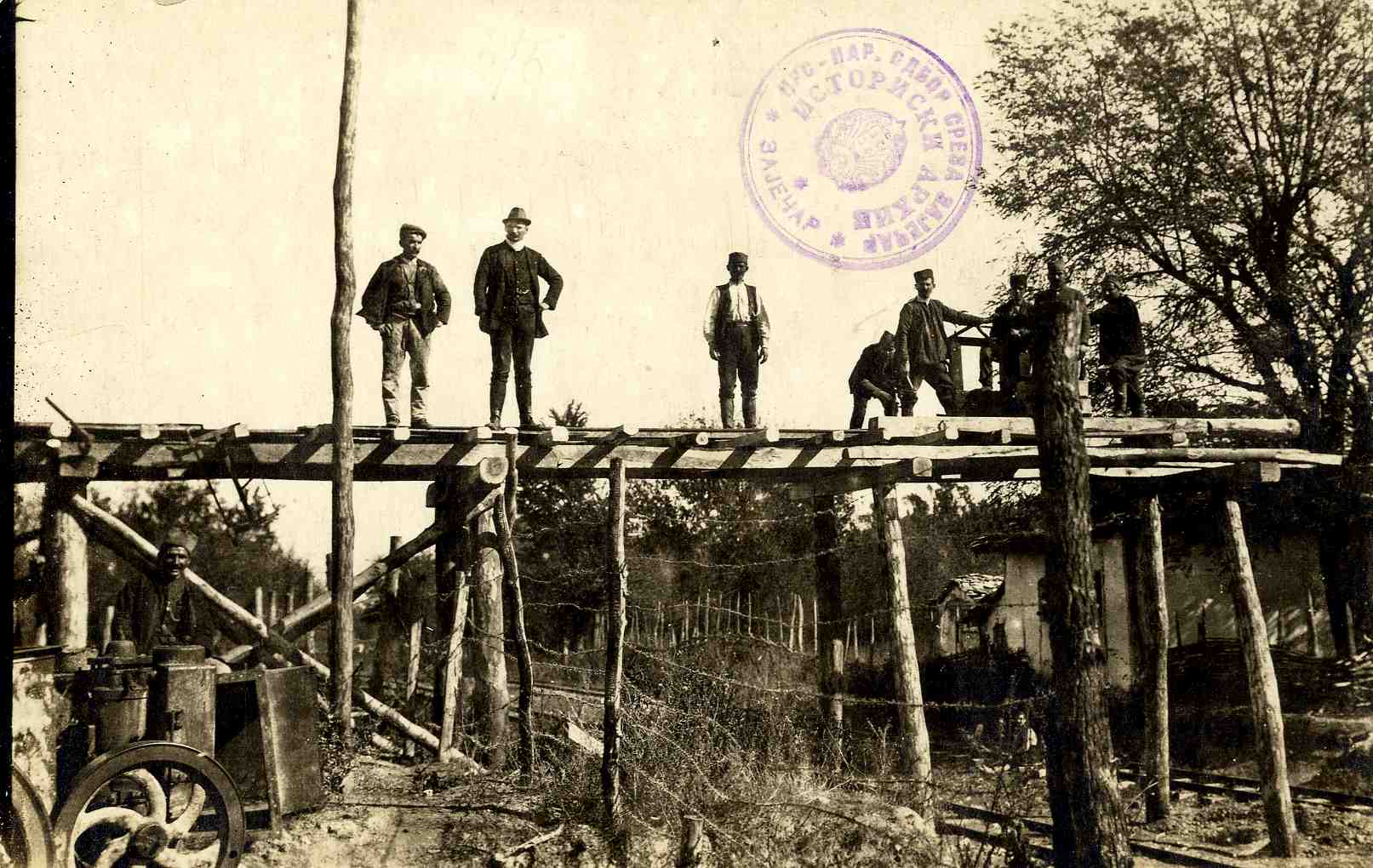
The building of Historical Archives was designed by the architect P. Đorđević and built in 1932 as a family house of Milan Savić (1857-1947), one of the richest man in Zaječar. He gave the house as a dowry to his daughter and her husband, the lawyer Predrag Nikolić.
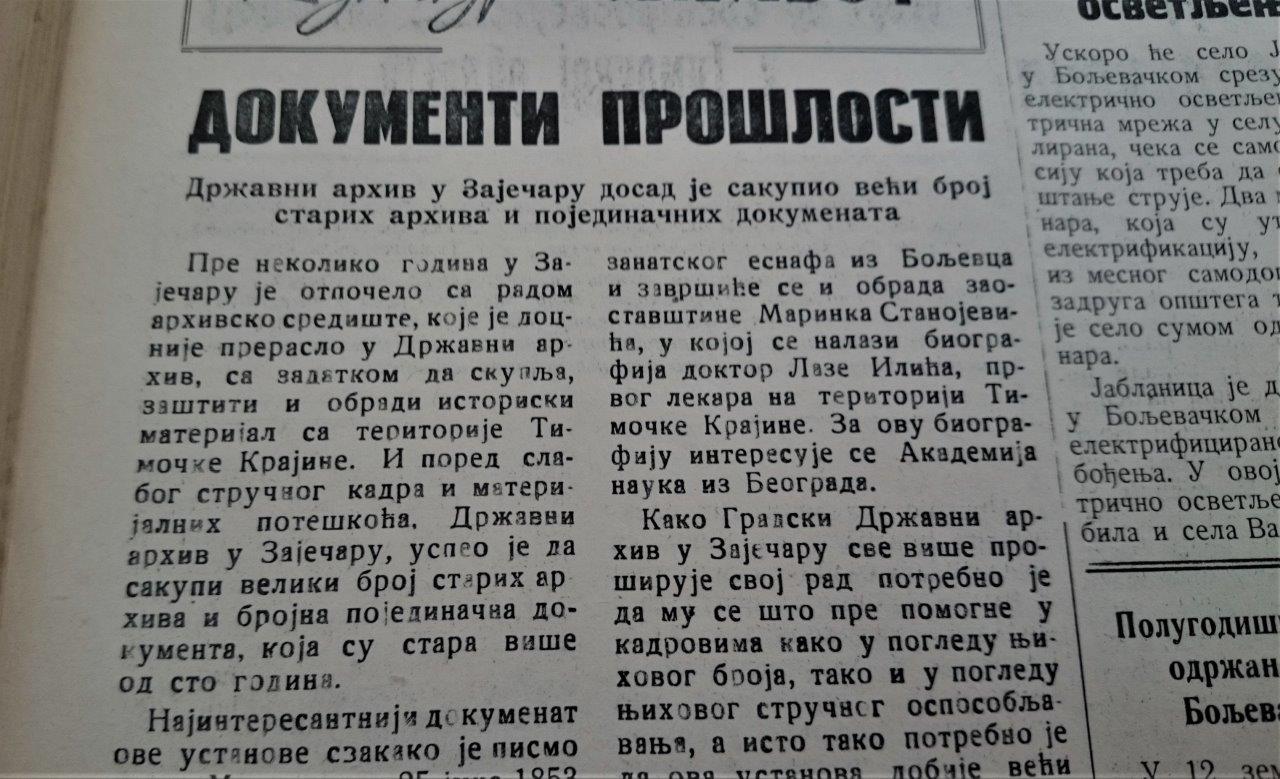
The Archival Center in Zaječar was founded on April 15th and covered nine counties. Radmila Bajo, a history professor at Zaječar Gymnasium, was elected as a director.
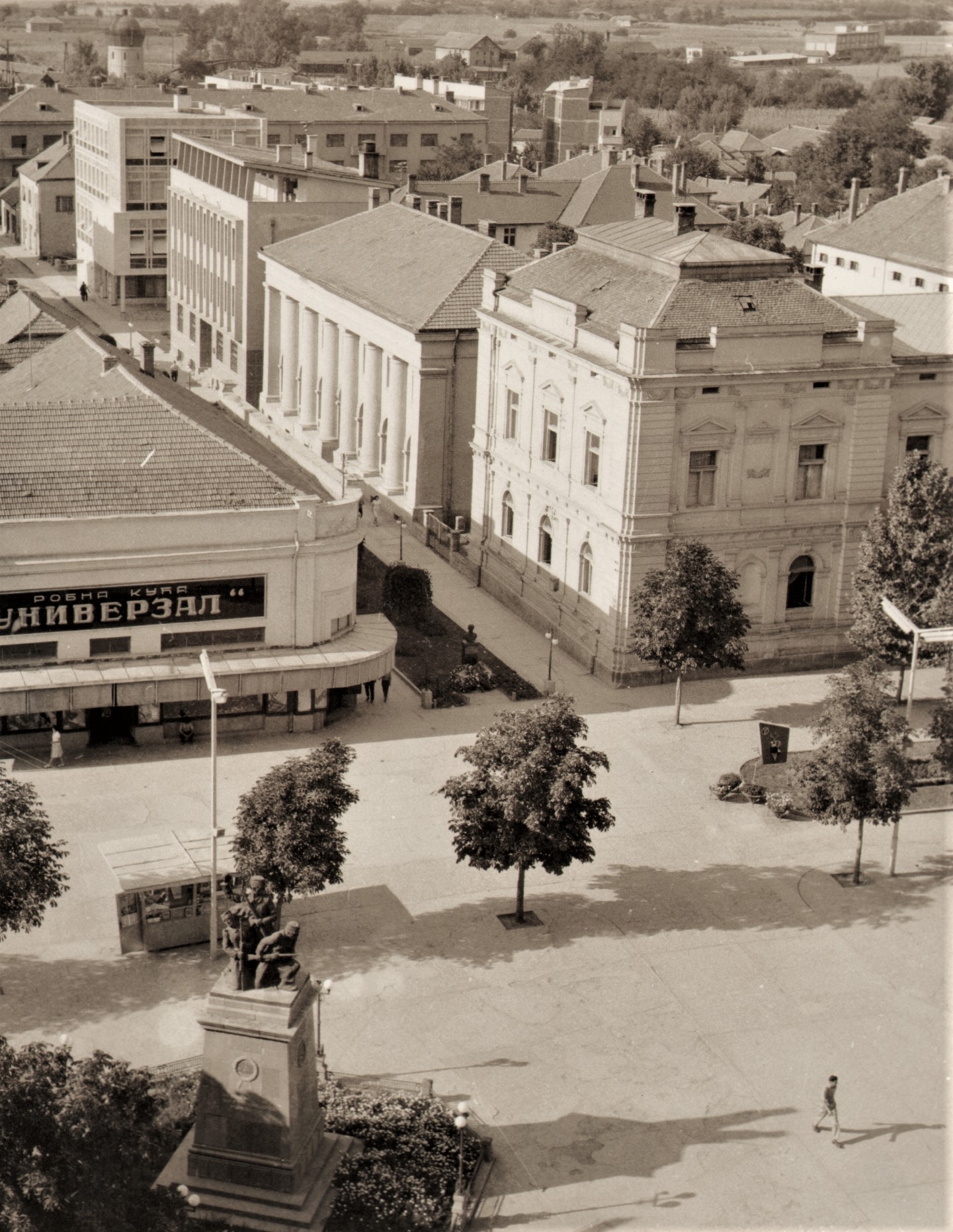
The Center was given its first offices at Kajmakčalanska Street no.2 (the current building of the Zaječar National Museum).
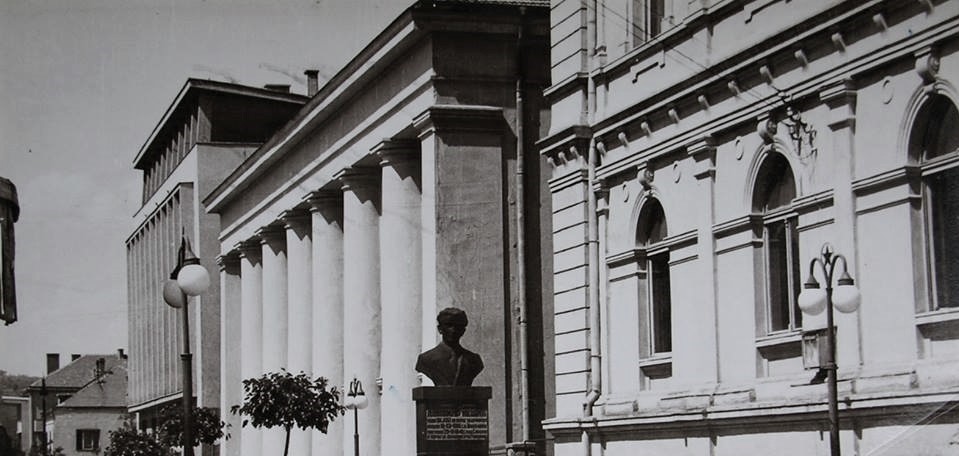
The Archival Center was renamed to City State Archives.
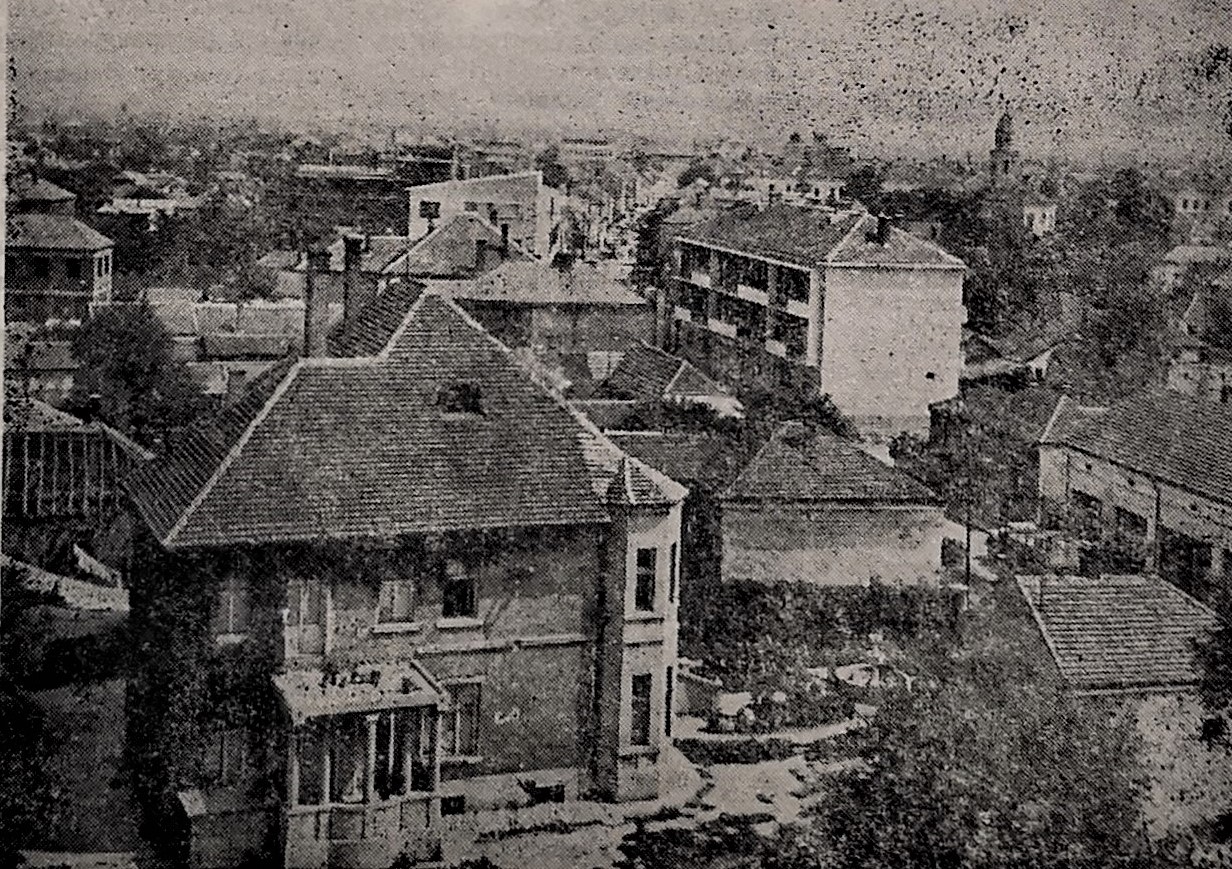
City State Archives became Historical Archives of Zaječar County.
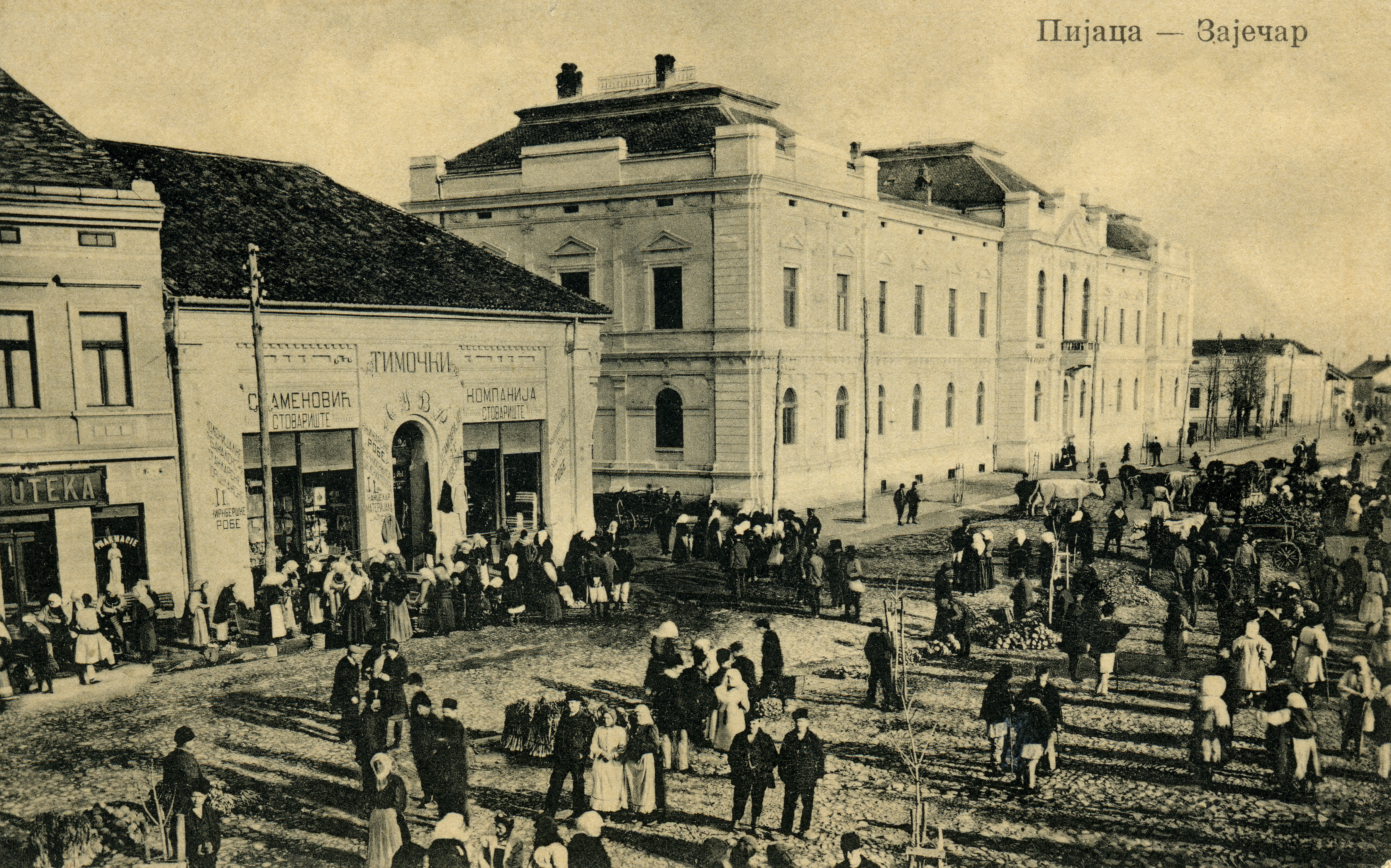
The Archives moved to the building of the Municipal Court, while using the former buildings of the army infantry to store the archival documents.

On December 27th the name was changed into Historical Archives “Timok Region” which the institution still has today.
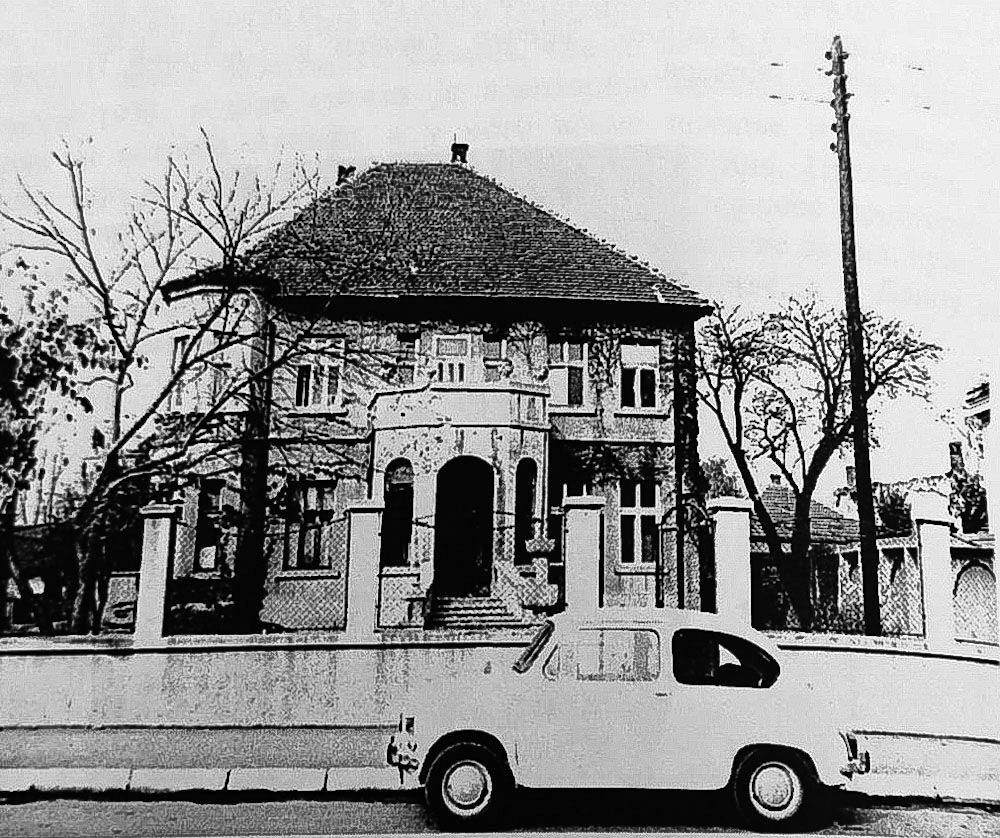
The Archives were moved into the building it still occupies, at then Marshal Tito Street no.160 (currently Nikola Pašić Street), which was bought from the previous owners. Nevertheless, the problem of storage still remained.
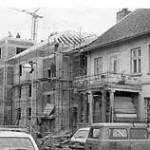
Thanks to the contribution paid by the workers of Zaječar, the Municipality and the Ministry of Culture of Serbia, the works on the new building of the depot begun in October.
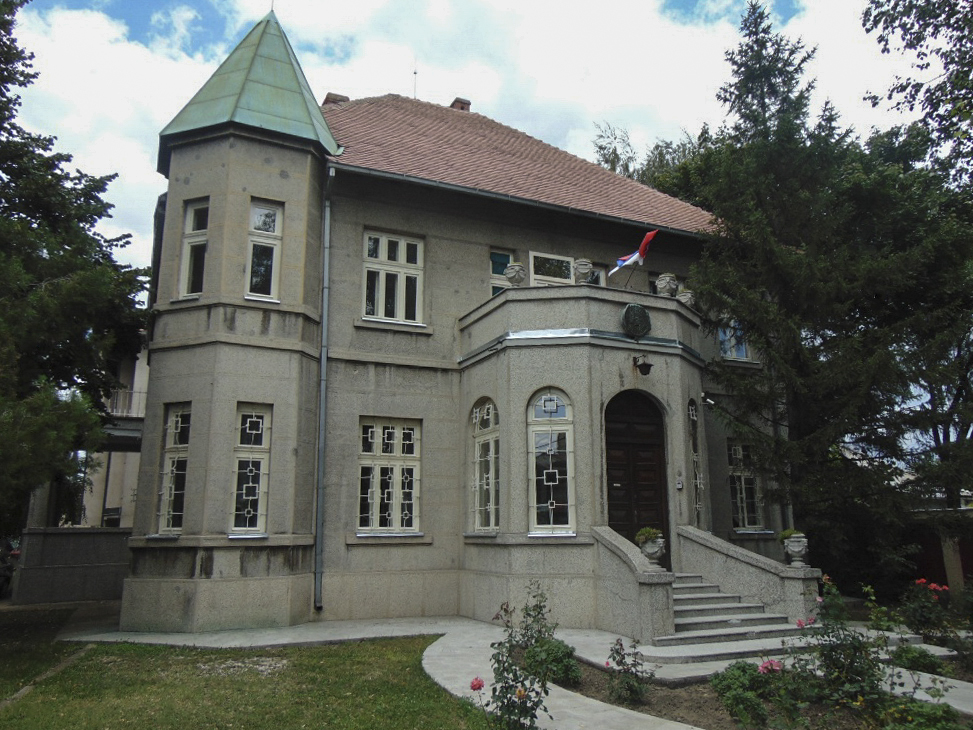
The Archival Depot was built according to the plans and regulations for the spaces dedicated to the storage of valuable items and documents, and covers a surface of 1000 m2.
FAMILY HOUSE OF MILAN SAVIĆ / PREDRAG NIKOLIĆ (1932)
The Historical Archives' building was built in 1932 by Zaječar-based architect P. Đorđević. It belonged to the family of Milan Savić (1857-1947), the owner of the mine “St. Sava” in Bogovina, and one of the wealthiest men at the time. He gave the building as a wedding present to his daughter who married Predrag Nikolić. The building was legally bought from its owners in December 1978 with the plan to house the Historical Archives. It became a protected cultural monument in 1984.
Milan Savić (the older brother of Jeremija Savić (1863-1911), famous industrialist, well-respected citizen and mayor of Zaječar) earned his early fortune as a contractor, by organizing the copper transport from Bor mines to the factories. In 1923 he was elected a representative at the Assembly of the Kingdom of Serbs, Croats and Slovenians, and as an industrialist and a leading millionaire, was a leading partner in the Cooperative for Industry and Trade A.D. In Zaječar he owned a large brick company and was known as a beneficiary of many funds, societies and institutions.
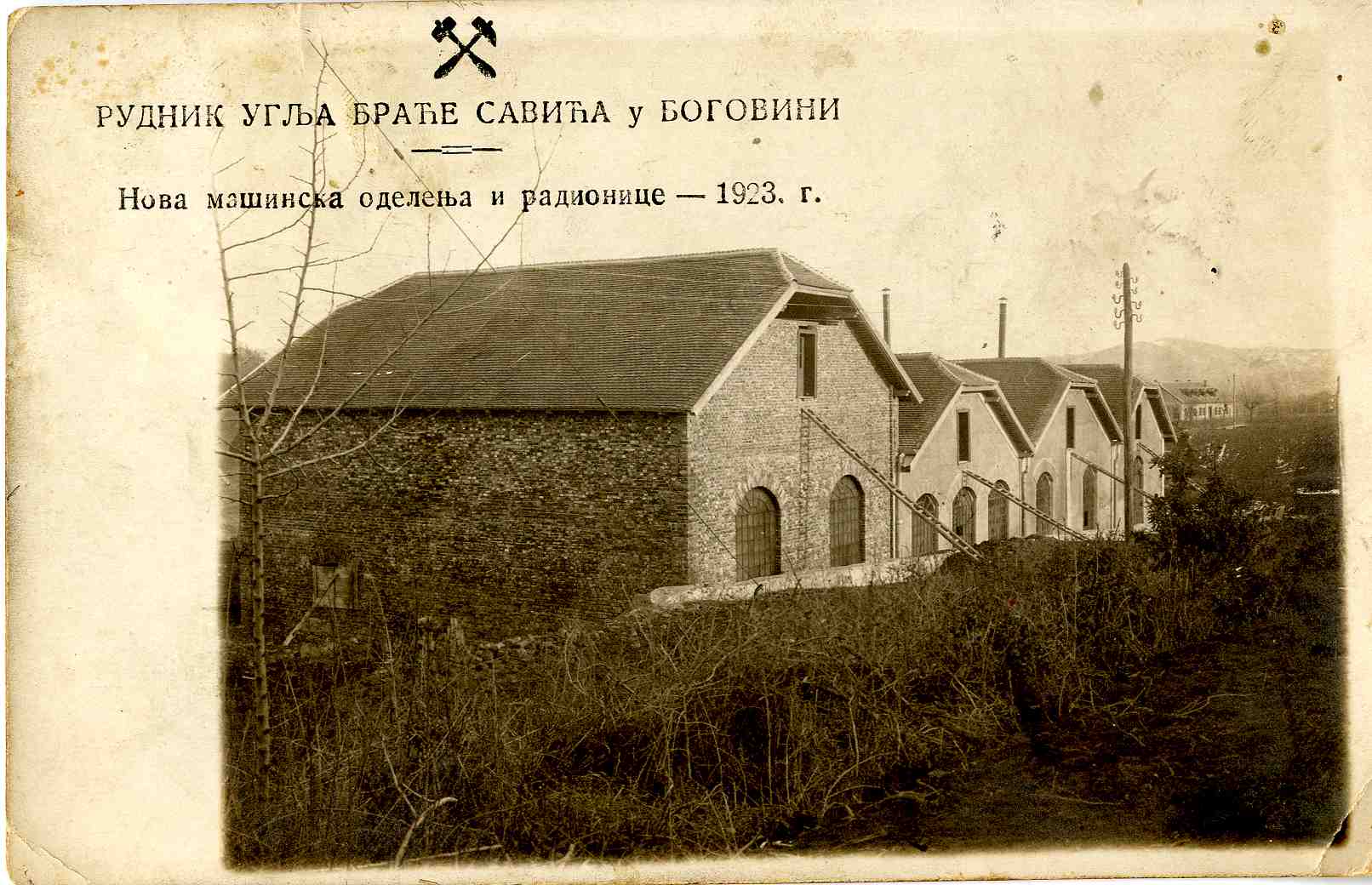
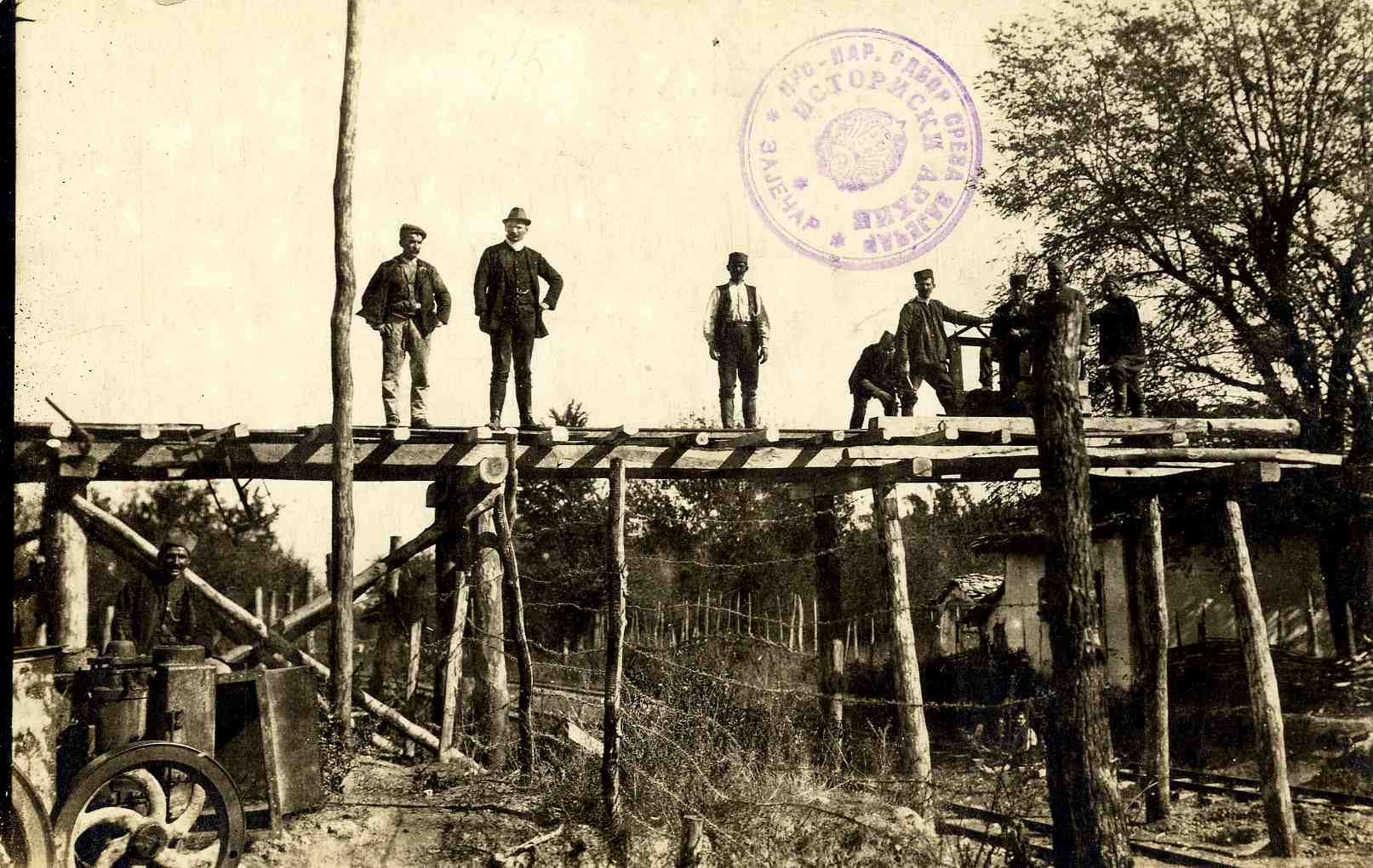
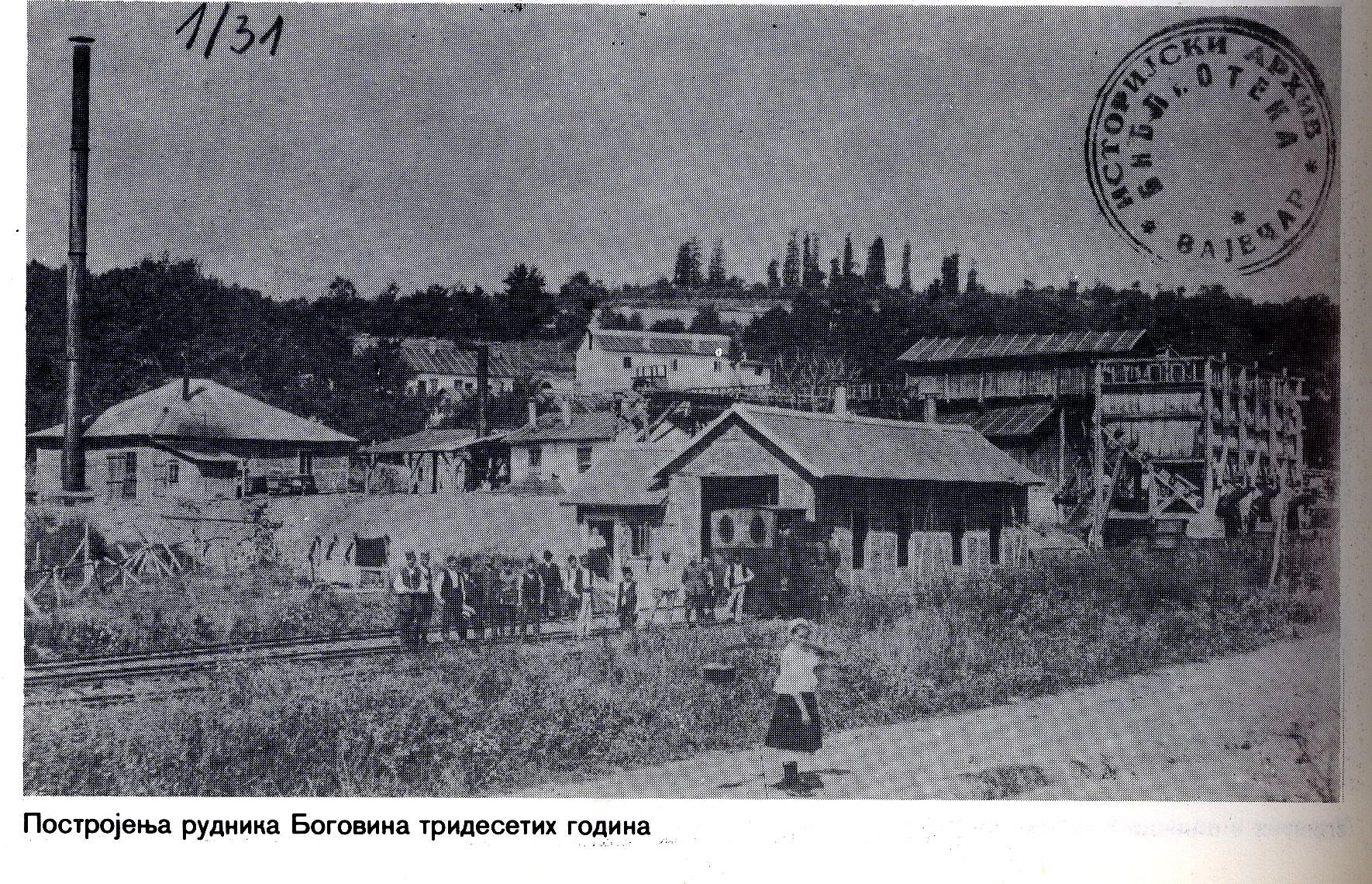
HISTORICAL ARCHIVES “TIMOK REGION”– ZAJEČAR (1979)
The Archival Center in Zaječar was founded on April 15th, 1948 when the Serbian Ministry of Education sent a note to all county and town committees, executing the orders by the Government of the Federal People’s Republic of Yugoslavia. The Archival Center covered several counties (Zaječar, Bor, Knjaževac, Negotin, Boljevac, Donji Milanovac). Radmila Bajo, a history professor at Zaječar Gymnasium, was elected as a director of the Center on May 6th, 1948. On Septembar 1st, 1949 the new director, the arch-priest Milan Rašić replaced Mrs. Bajo. After the new General Law Regarding State Archives was passed on February 18th, 1950 the Center was given its first offices at Kajmakčalanska Street no.2 (the current building of the Zaječar National Museum). The Law Regarding State Archives of Serbia in 1951 renamed the Center into City State Archives, placed under the jurisdiction of the People’s Committee of Zaječar. The next change of the name happened in 1957 when it became Historical Archives of Zaječar County. After some turbulent years and frequent changes of directors, the institution was led by Rade Panajotović from 1955 to 1970.
Since the beginning, the Archives had a big housing problem, and it shared the space with the National Museum until 1967 when it was moved to the building of the Municipal Court, while using the former buildings of the army infantry to store the archival documents.
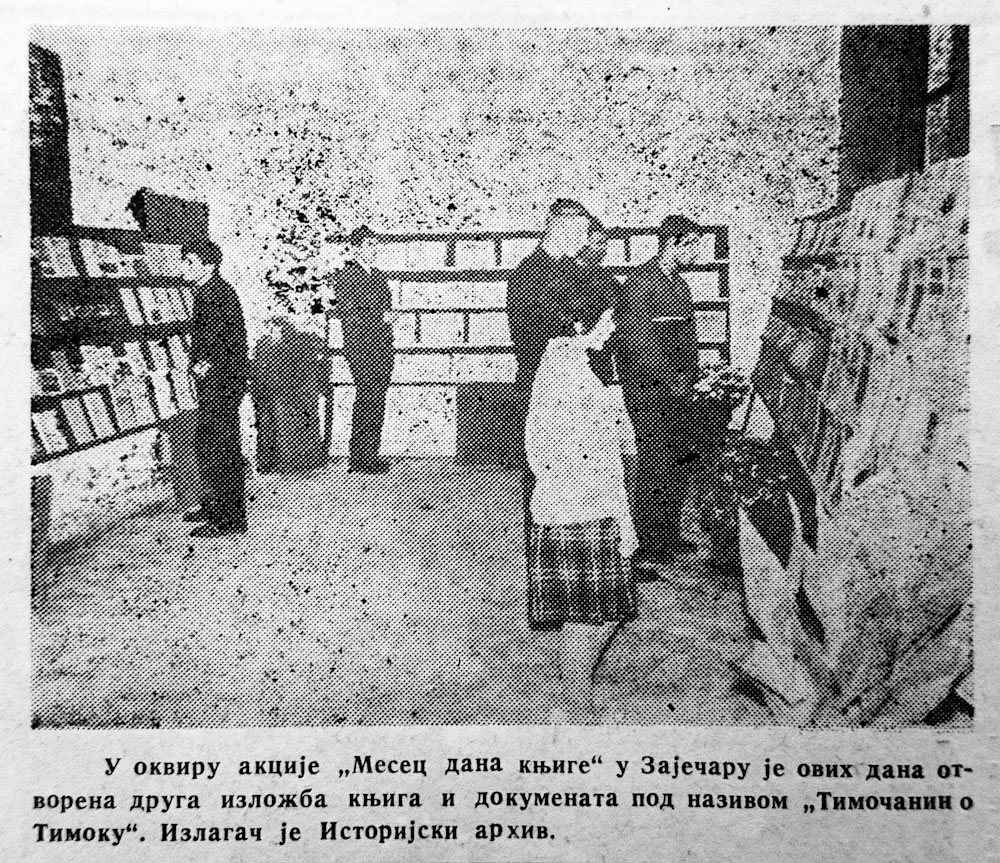
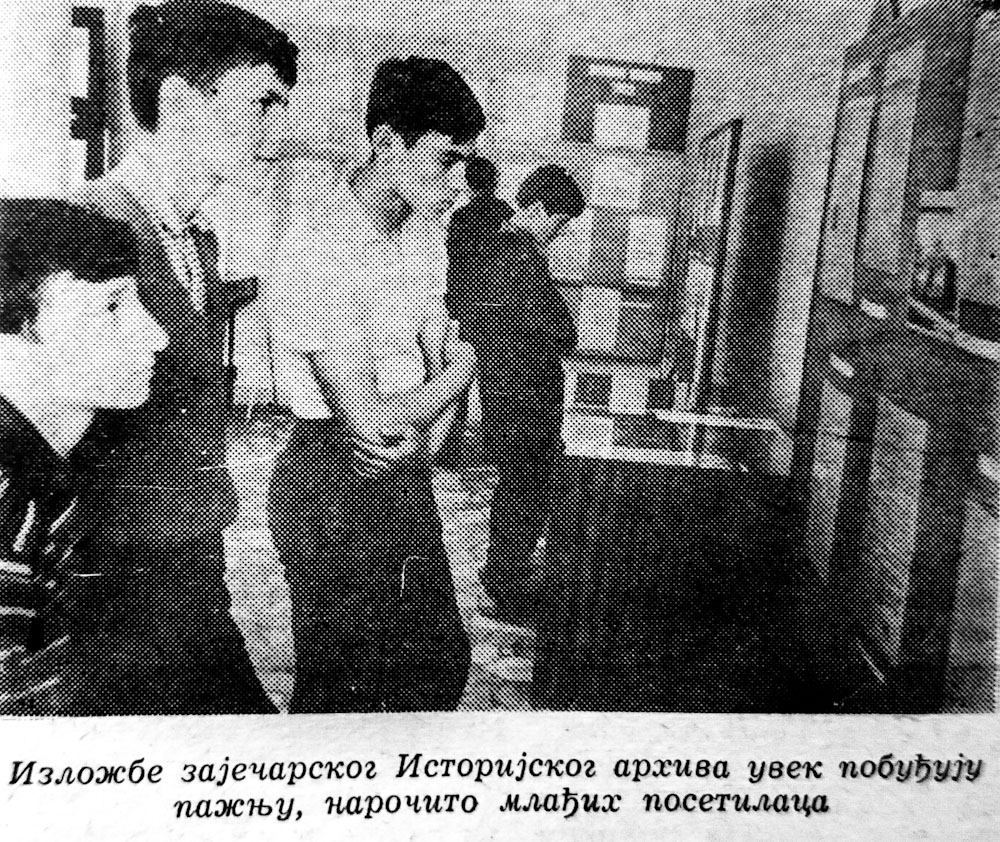
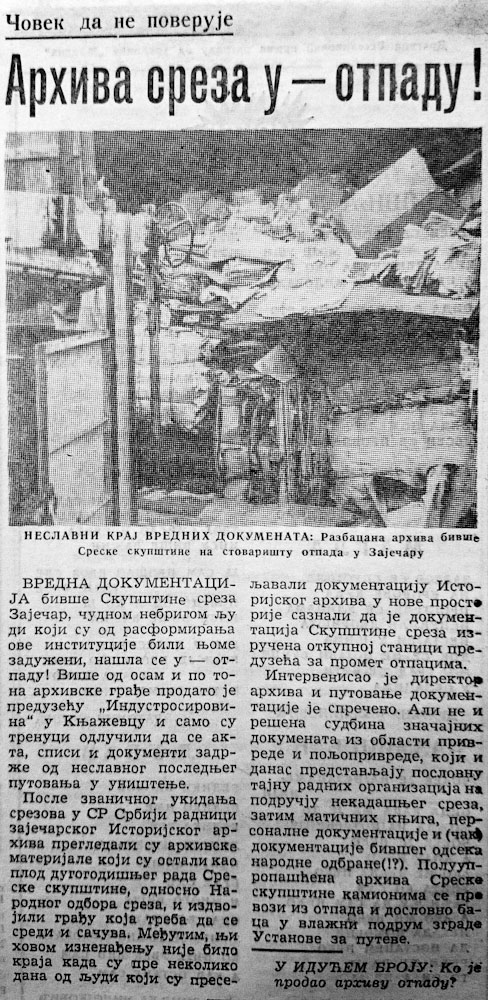
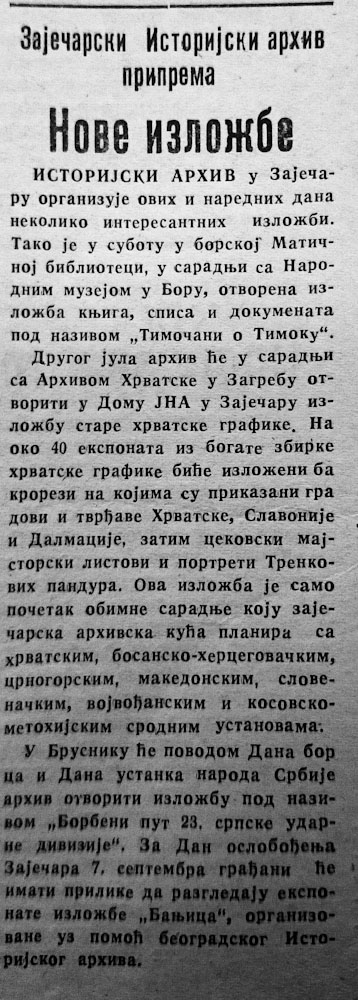
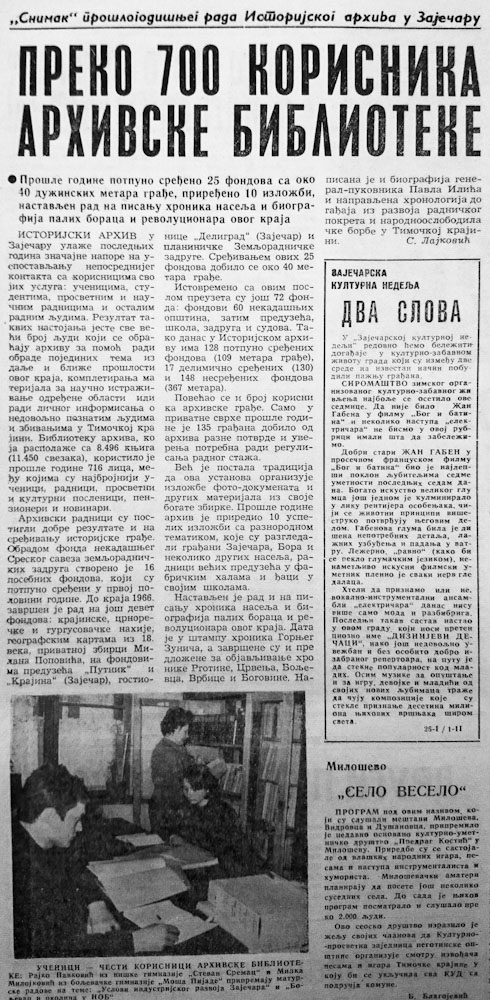
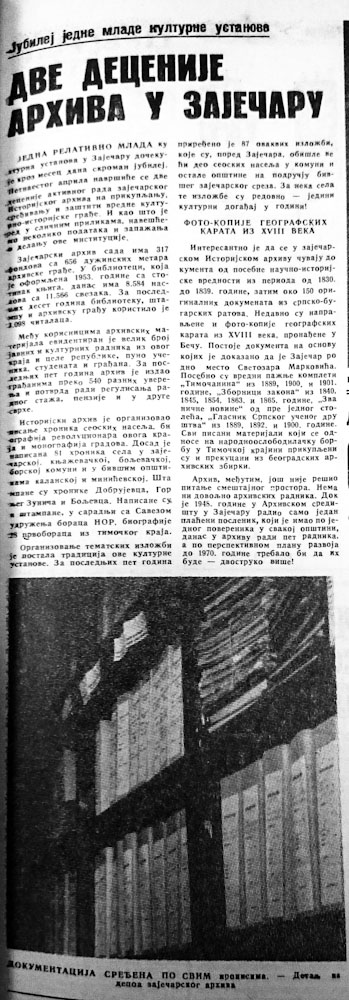
The final change of the name happened on December 27th 1973 into Historical Archives “Timok Region” and which the institution still carries.
The housing problem was resolved in 1979 when the Archives were moved into the building it still occupies, at then Marshal Tito Street no.160 (currently Nikola Pašić Street), but the problem of its storage still remained. Thanks to the contribution paid by the workers of Zaječar, the Municipality and the Ministry of Culture of Serbia, the works on the new building of the depot begun in October 1990. The Archival Depot was built according to the plans and regulations for the spaces dedicated to the storage of valuable items and documents, and it was finished in 1993. Its space covers a surface of 1000 m2 which solved a long-term problem of the safekeeping of the archival items. Like other archives in Serbia, from 1992 it was under the jurisdiction of the Ministry of Culture of Serbia until 2003, when it was returned to the jurisdiction of the Municipality of Zaječar.
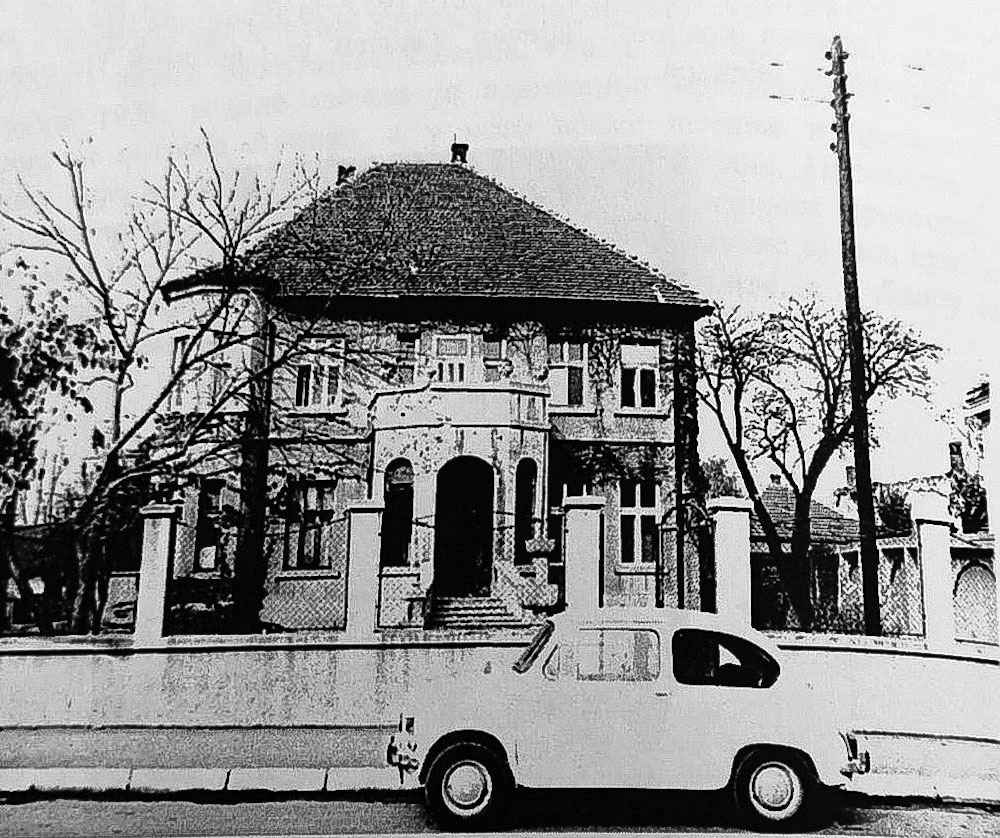
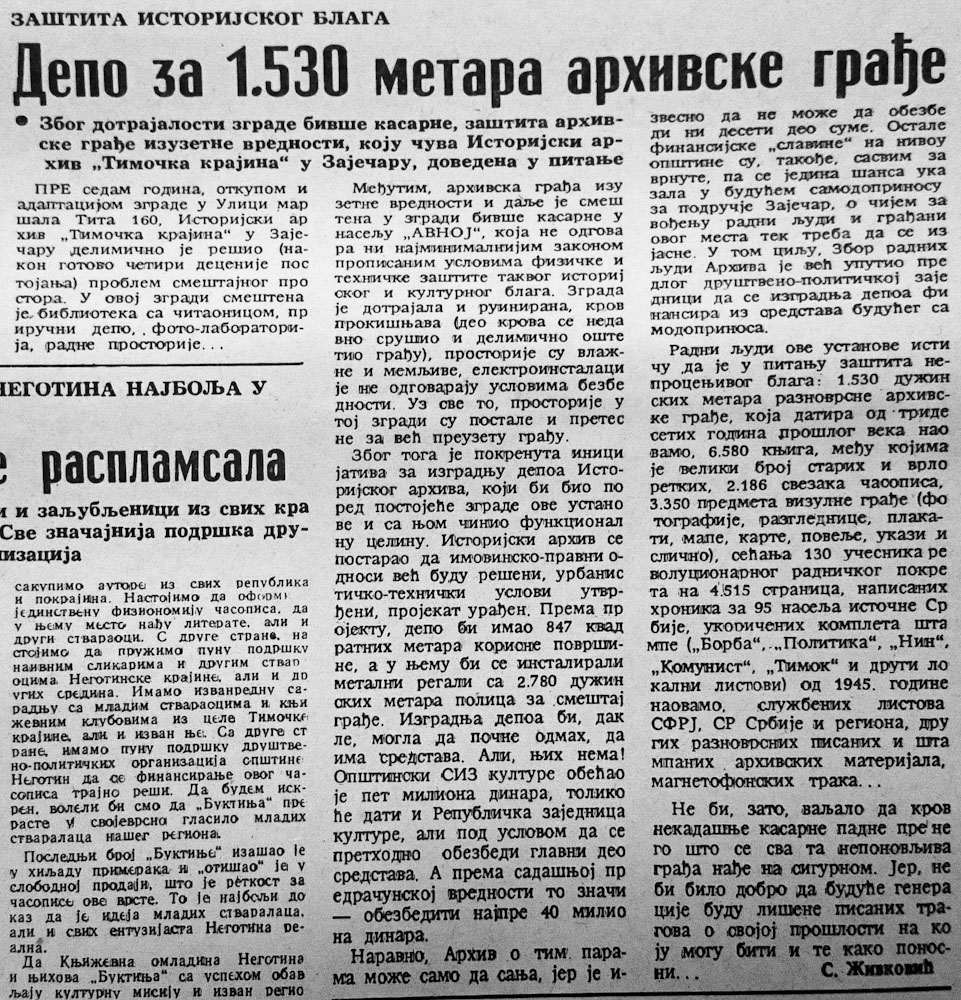
From 1983 to 1990 the Archival Department of Bor was part of the Archives, as well as the Foundation “Nikola Pašić” from 1996 to 2001. The Archives is today responsible for the city of Zaječar as well as for Knjaževac and Boljevac, with over 1000 creators of the future archival documents, from which 500 priority registers. In its Depot, the Archives stores 3670 meters of various archival items, divided into 570 individual fonds and collections. According to the official criteria for the safekeeping of the archival items, the Archives in Zaječar stores documents of exceptional and great importance, including church archives. In 1998 the Steering Committee of the Archives of Serbia proclaimed 19 different fonds stored in Zaječar to be of great importance.
Today, the Archives has the following departments: the Department for the Protection of the Archival Documents and Registers Outside of the Archives – the External Service, the Department for the Protection of the Archival Documents and Registers in the Archives – the Depot, the Department for the Analysis and Care of the Archival Items, the Department of the Archives’ Library and Access to the Archival Items, the Department for Culture, Education and Information, and the Department for Digitization of Archival Items.

SOURCES:
Agim Januzi, Sedam decenija Istorijskog arhiva „Timočka krajina“ Zaječar (1948-2018). Zaječar, 2018.
Archives Official Website: arhivzajecar.org.rs
Tomislav Mijović, Istorijski arhiv „Timočka krajina“ Zaječar 1948-1988. Zaječar, 1988.
Stevan M. Veljković, Iz starog Zaječara: rodovi i porodice, građevine i radovi. Zaječar, 2002.

The National Museum building was built in 1927 as a home to the military institute for road design.
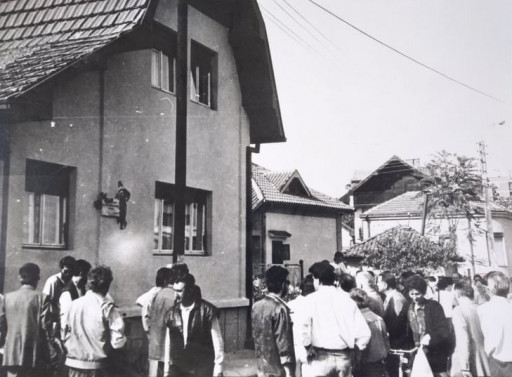
The house in which one of the most important Serbian actors, Zoran Radmilović, grew up is located at...
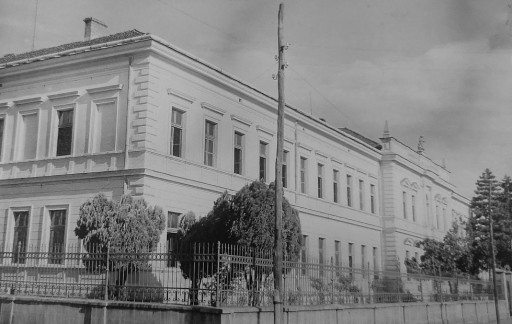
During its long history, it was a home to Zaječar Gymnasium (1893-1959), High School of Economics (1...
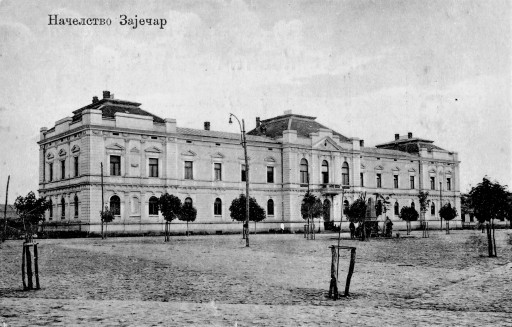
In 1907, the prominent Serbian architect Petar Popović designed the building of the Zaječar Magistra...